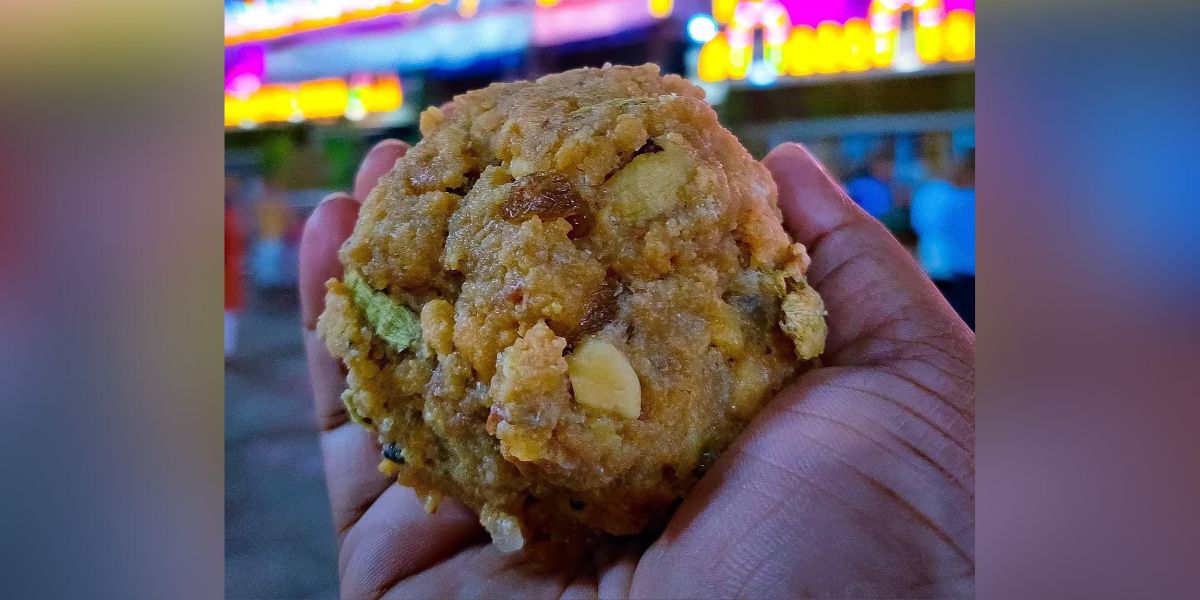South First inquired with Tirupati Tirumala Devasthanam officials, who were surprised by Chandrababu Naidu’s claim.
Published Sep 19, 2024 | 4:23 PM ⚊ Updated Oct 10, 2024 | 9:22 PM

Tirupati Laddu. (X)
Animal fat has never been used in the history of Tirupati Tirumala Devasthanam (TTD) to prepare the famous laddus, said an official working for the temple.
Contrary to Andhra Pradesh Chief Minister Chandrababu Naidu’s claim that animal fat was used to prepare laddus, during the YSRCP regime at the Sri Venkateswara Swamy Temple in Tirumala, an official committee report from TTD showed that it was not true.
While concerns over subpar or adulterated ghee had been raised in the past, the adulteration came from vanaspati, usually of the brand Dalda — a vegetable fat made by hydrogenating refined vegetable oil. Never from animal fat, as Naidu claimed.
Officials noted that consignments with adulterated ghee are rejected and, in case of repeat offences, the vendors were blacklisted from participating in the tender process to supply ghee to TTD.
South First spoke to an official involved in the procurement of cow ghee by TTD and its testing in laboratories. Earlier this month, a Ghee committee that was set up by TTD submitted a report.
“Animal fat has never been found in the preparation of Sri Vari Laddu in the history of Tirumala Tirupati temple,” the official of TTD said, adding that Naidu’s fleeting statement on the usage of animal fat was shocking.
TTD needs about 15 tonnes of cow ghee per day. The tenders for ghee procurement, issued every six months, are among the biggest tender TTD floats. So far, TTD has been procuring ghee through four different e-tenders:
The ghee committee’s report pointed out that there had been occasions when pilgrims complained about the quality of the Tirupati Laddu Prasadams. The committee zeroed in on the quality of ghee as the primary factor of fragrance and taste that pilgrims raised quality concerns about.
Currently, every consignment of ghee is subjected to wet chemistry testing at the TTD laboratory. The consignment is accepted only if the product passes quality standards. If not, the consignment is rejected.
You can access the full Ghee Committee report of TTD here.
“Ghee, an expensive edible fat, is often suspected/reported to be adulterated with cheaper oils/fats. Hence, thorough objective testing is mandatory to confirm the genuineness of the ghee,” the report said. Even then, the report only mentions plant fats and not animal fats, contrary to Naidu’s claims.
To enhance quality checks for ghee procurement, the report suggested several measures, including the Food Safety and Standards Authority of India (FSSAI) specified test for the detection of beta-sitosterol (using RP-HPLC) and fatty acid composition (using GC-FID).
Several firms that have repeatedly sent subpar or adulterated products have been blacklisted permanently from participating in the tender process to supply ghee.
Over the last ten years — stretching from the TDP regime between 2014 and 2019 and the YSRCP regime between 2019 and 2024 — one firm from Ambala in Haryana, another firm from Gujarat, and most recently, one firm from Tamil Nadu, were blacklisted for adding plant fats to adulterate ghee.
Interestingly, over 90 percent of the firms that supply ghee to TTD have been doing so for decades now — spanning over the TDP regimes as well as the YSRCP’s.
Premium Foods, Bareilly (Uttar Pradesh); Alpha Milk Foods, Hatras (Uttar Pradesh); Karnal Milk Foods, Haryana; KMF (Karnataka); Aavin (Tamil Nadu); Visakha Dairy, Vaishnavi Dairy, Parag Dairy and Tirumala Dairy from Andhra Pradesh have been the suppliers during the governance of TDP and the YSRCP. Few suppliers have changed post-2019 but the majority existed before and continue to be suppliers.
The TTD official South First spoke to said Vanaspati, Dalda or plant fats are added to ghee by some vendors since they are cheaper and also enhance the shelf life. TTD, however, doesn’t accept such adulterated ghee. Consignments are subjected to testing and any sign of adulterations leads to rejection of consignments and the supply is sent back.
This being the case, Chandrababu Naidu’s claim that animal fat has been used in Tirupati Laddu has come as a shock even to officials of the temple.
Did the Andhra Pradesh Chief Minister make a blasphemous claim to score political brownie points?
Even as South First accessed the full report of TTD’s Ghee committee that makes no mention of animal fat, an unattributed and undated single-page, claiming to be a lab report, has been doing the rounds.
Several social media handles have been sharing the page with claims that the unattributed page proves fish oil and beef tallow are used in preparing Tirupati laddu. The viral photo of the page, named Annexure – 1, Lab Ref No AB023654, seems to have tested a sample of Ghee. It is, however, unclear which report the page is from. It is also unclear whether the page is about Tirupati laddu or even ghee used in its preparation or if it is a lab report of a consignment that was rejected for being sub-standard.
(Edited by Muhammed Fazil)
